In ancient days, a diagnosis of leprosy was a death sentence. And that’s not just because they didn’t know how to treat the disease. They didn’t – but what was really horrible is the way the lepers were treated. First of all, they were called lepers – not people – so being labeled as such stripped them of their personhood, and put them on the same level as a virus that needed to be eradicated. They were cut off from the community, so they would have no community or even family support. They were forbidden to worship with the community, so they must also have felt cut off from God. And so it went for those who contracted leprosy: sick and alone, they were left to survive as best they could, or just to die.
If that doesn’t sound somewhat like the current pandemic, I don’t know what does. It’s heartbreaking to me to see how people die alone in hospitals because their loved ones are kept from visiting. I understand what’s behind it, but the emotional cost of that is something we shouldn’t underestimate.
The worst part about the way the ancients treated leprosy is that most of the time people didn’t actually have leprosy: their lack of scientific knowledge led them to label as leprosy any kind of skin ailment. The rules for dealing with people with these diseases were based on fear: they didn’t want to contract the disease themselves, so the “clean” ones ostracized those with disease, treating them as if they didn’t exist.
Jesus, obviously, didn’t agree with that kind of way of “treating” the illness of leprosy. He didn’t really have any more scientific resources at that time to treat the disease, but it wasn’t the disease he was concerned about. No, he was concerned about the person, not the illness. And so he does not take offense when the leper breaks the Levitical law that we heard in our first reading and actually approaches Jesus. Jesus, too breaks the law by reaching out to touch him and saying, with an authority that comes from God himself, “I do will it. Be made clean.”
The thing is, we don’t treat lepers very well today, either. I don’t mean people who have the actual disease of leprosy – that is actually pretty rare, very treatable, and even curable, in this day and age. What I mean is that there are a lot of leprosies out there. Some people tend to ostracize a loved one when they contract a difficult disease, like cancer. They can’t bear the thought of death, or they don’t like hospitals, or they feel powerless to help in these situations, so they stay away. Hospitals and nursing homes are full of people who never receive a visit from family or friends. Right now, with the pandemic, it’s not possible, but in times when it is, a lot of people don’t get visited. Our pastoral care ministers could probably tell you many heart-breaking stories with that theme.
And leprosy doesn’t apply just to sick people. People who are different in any way are subject to ostracization: people who have different color skin than us, people who are not Catholic or not Christian, people who are homosexual, people who are poor or homeless. All of these we treat from a distance, keeping them outside the community, outside of means of support, outside of the love of God in just the same way the ancients dealt with lepers. We have a tendency to label people and then write them off.
I don’t know about you, but I’m glad God doesn’t treat broken people that way. Because then I might be cut off because of the brokenness of my many sins. We all have something in us that is unclean, and it would be woe for us if God just wrote us off. He doesn’t. He reaches out to touch us to, exactly where we are at, without fear of contracting the illness of our sin himself, and heals us from the inside out. “I do will it. Be made clean.”
Our religion, thankfully, has rituals for the things that infest us. When we are sick, there is the sacrament of Anointing of the Sick. When we are sinful, there is the sacrament of Penance. We call these the sacraments of healing, because they do just that: give us God’s grace when we are sick or dying, and his forgiveness and mercy when we have sinned.
Many people misunderstand the sacrament of Anointing of the Sick. No longer do we think of that as something to be done at the last possible moment. It should be done as soon as it is known that a person is gravely ill. We rely on doctors to tell us that. It should be done before someone has serious surgery. It should be done when a person is suffering from mental illness of any kind. It might be done more than once: when a person is first diagnosed, for example, and then again when they are near death, or when the illness is worse in any way. It should be done at a hospital or nursing home, or in a person’s home, or even here at church. Wherever the person is or is most comfortable. We are also having a Mass with Anointing of the Sick during Lent here in church. The sacrament provides grace to live through an illness, or mercy on the journey to eternity, sometimes even healing if that is what God knows to be good for the person. Please don’t wait until a person has just moments left to send for a priest, don’t be afraid to ask us to anoint you before surgery, and don’t assume that if you’re in the hospital, we will know – they can’t really tell us that any more.
As for the Sacrament of Penance, there are many opportunities to celebrate that sacrament: Saturdays at 2:30 pm, and during Lent, starting this Friday, we will have a confessions on Fridays at 6pm. The problem can sometimes be that a person feels embarrassed to go to Confession if they’ve been away from the sacrament for a long time. Don’t be. It’s our job to help you make a good Confession, and we are absolutely committed to doing that. Your sins don’t make us think less of you; in fact I always have deep respect for the person who lowers his or her defenses and lets God have mercy on them.
These are wonderful sacraments of healing. God gives them to us because he will not be like those living in Levitical times. Just as he reached out to the leper in today’s Gospel, so Christ longs to reach out and touch all of us in our brokenness, in our uncleanness, and make us whole again. As the Psalmist sings today, so we can pray: “I turn to you, Lord, in time of trouble, and you fill me with the joy of salvation.” Praise God for Jesus’ words today: “I do will it. Be made clean!”
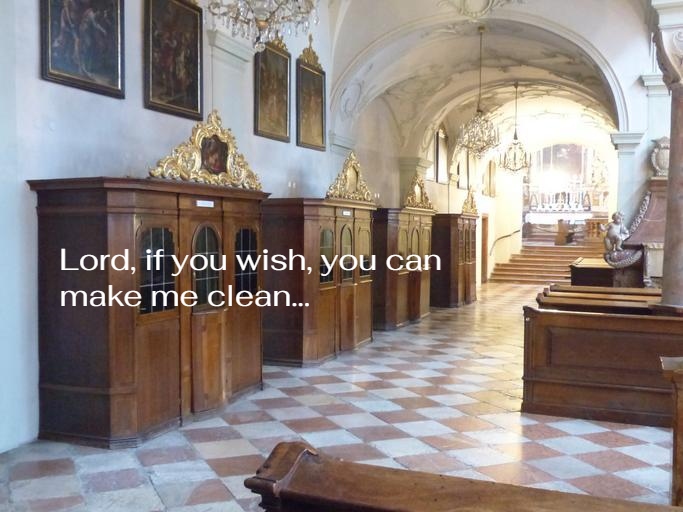
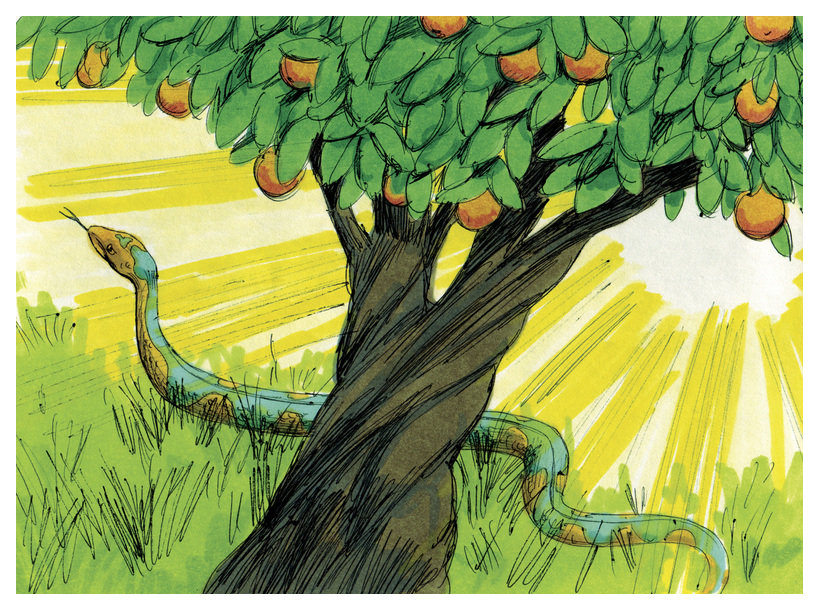
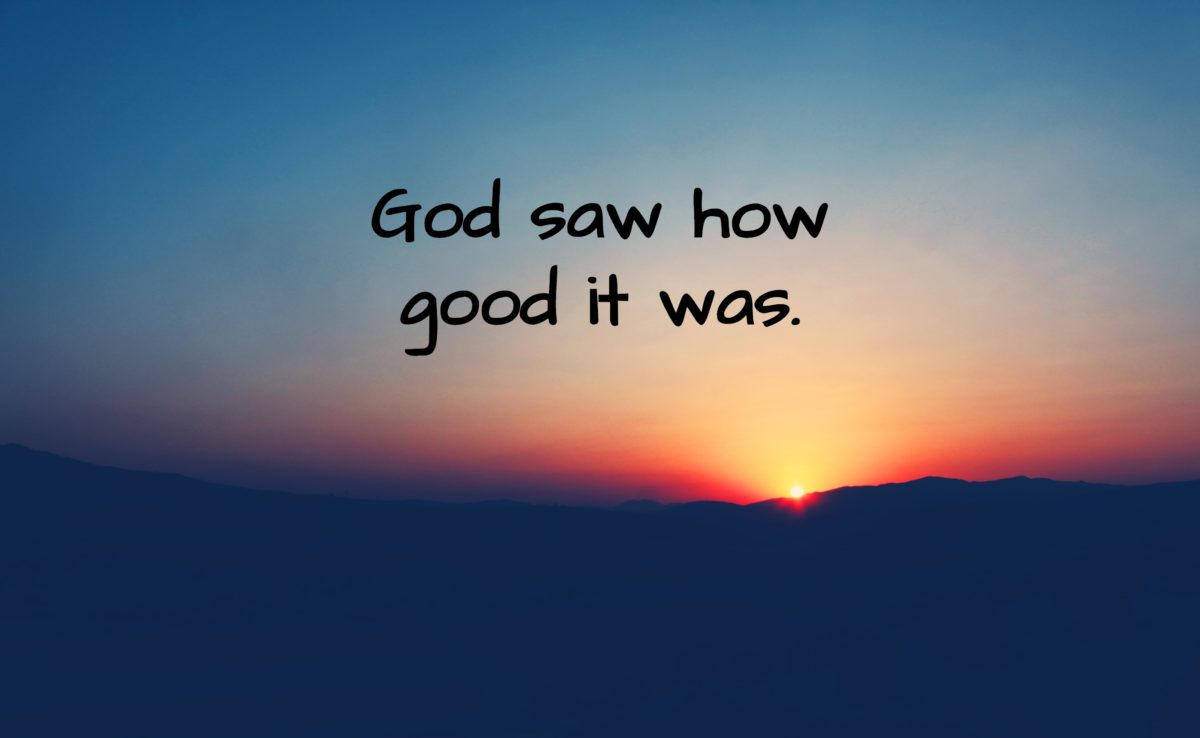

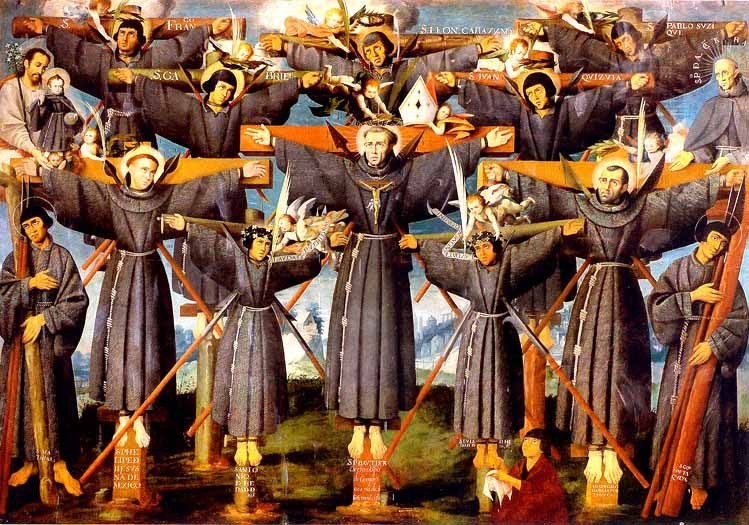
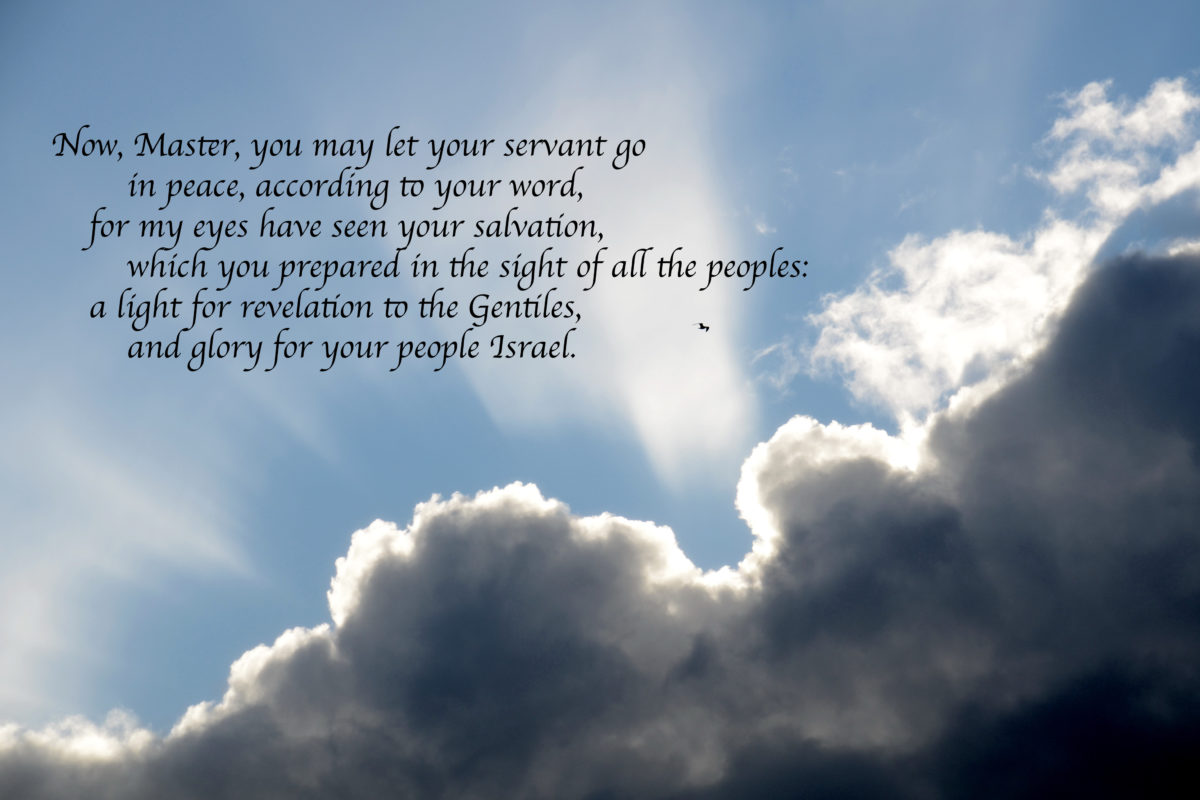
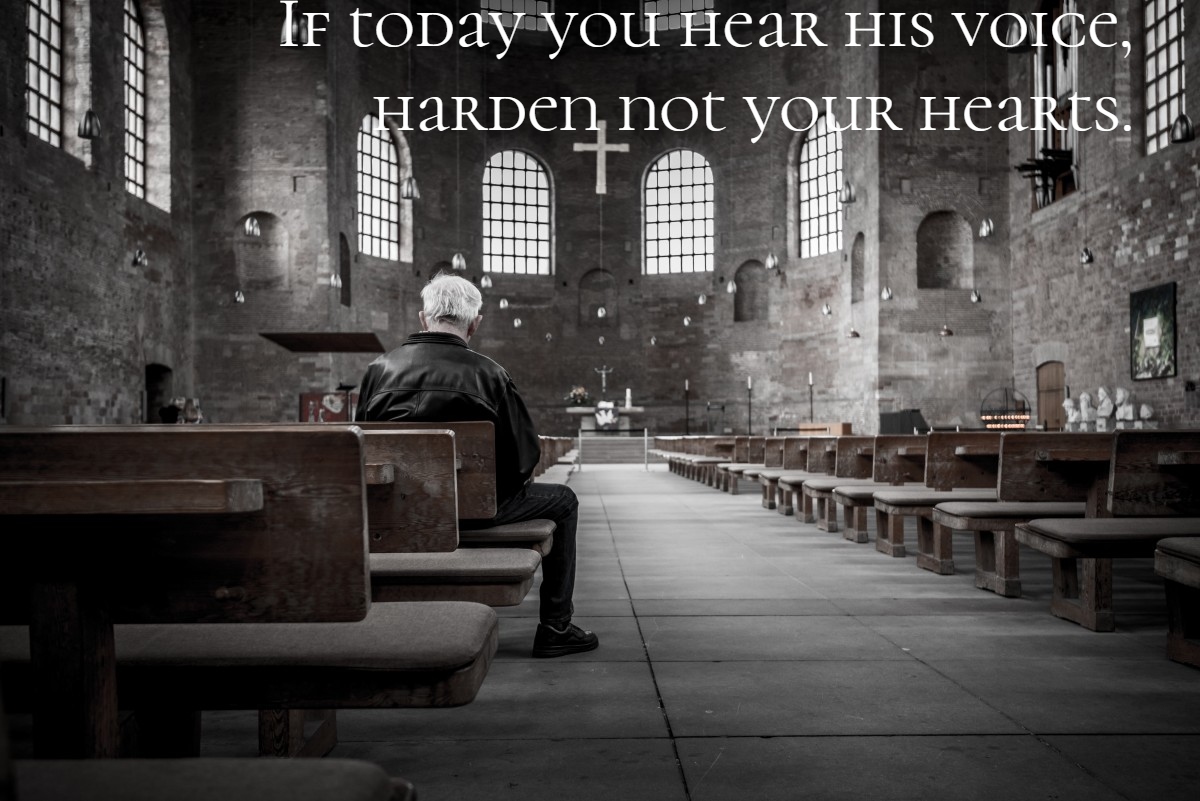
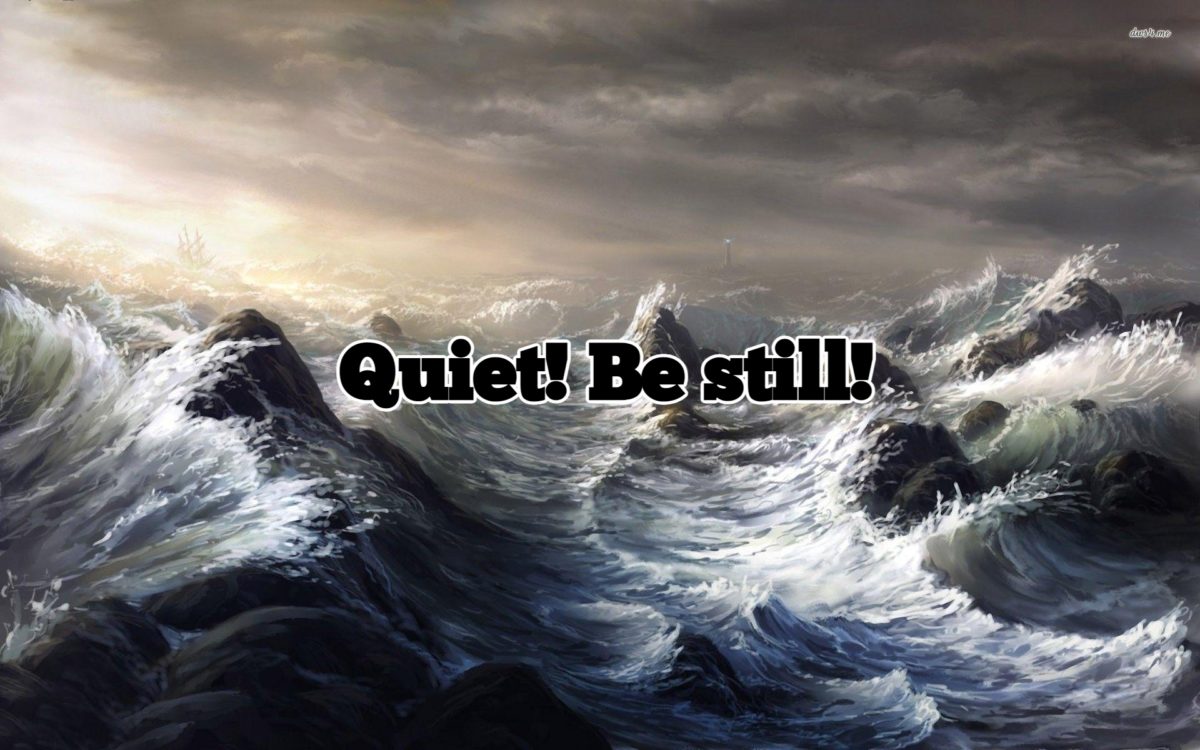
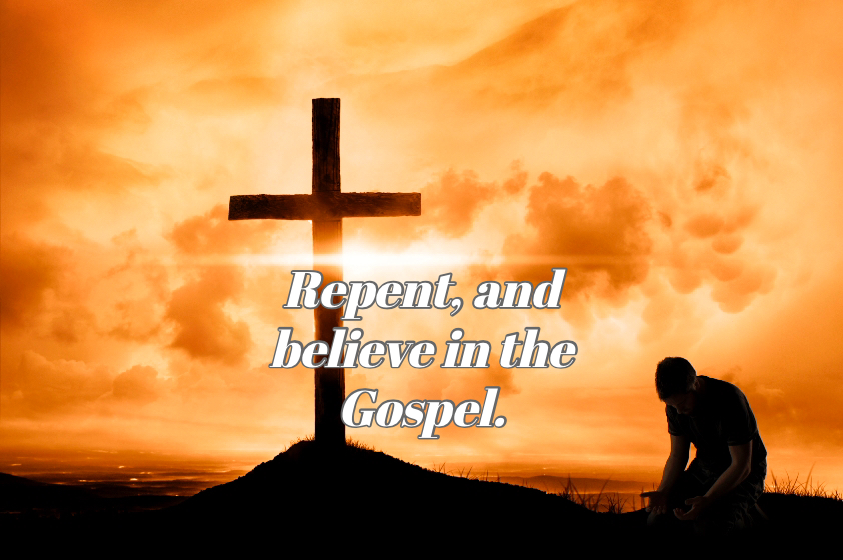

You must be logged in to post a comment.